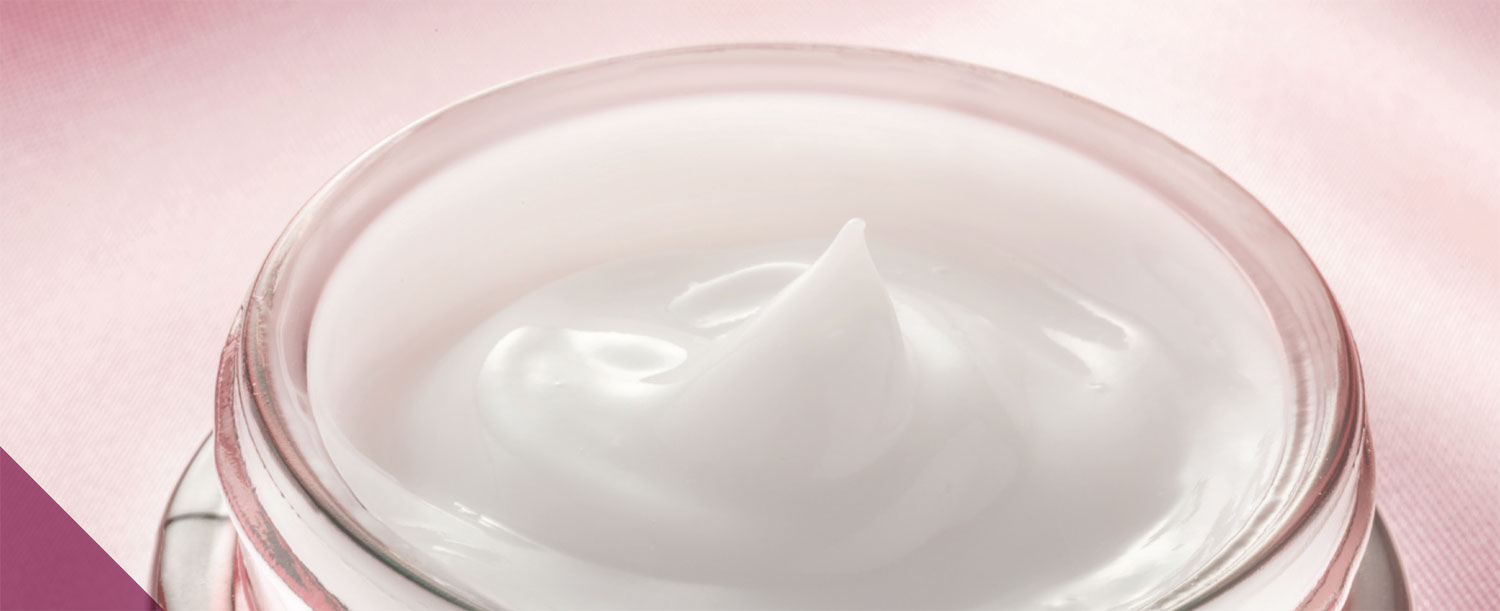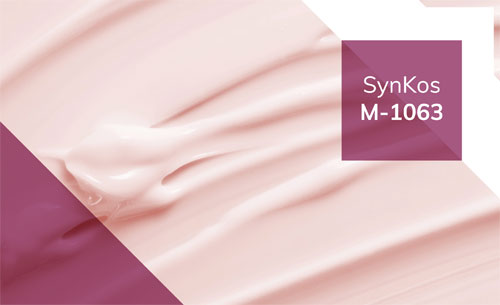SYNKOS M-1063
THE SCIENCE OF WAX, WITHOUT THE WEIGHT OF PETROLEUM
At Koster Keunen, we believe in evolving cosmetic wax technology through thoughtful innovation and responsible chemistry. SynKos™ M-1063 is our latest advancement in the SynKos series—engineered specifically to replace microcrystalline wax in personal care. Designed without petroleum, BHT, or PAHs, M-1063 delivers functional equivalency and comparable texture in standard formulations—without compromising performance.
Where traditional microcrystalline waxes are derived from fossil sources, SynKos M-1063 offers a cleaner, more sustainable option while meeting the technical demands of emulsions, lip products, and anhydrous systems
WHY CHOOSE SYNKOS™ M-1063?
SynKos Waxes are used as gelling agents, thickeners, viscosity modifiers, and barriers. They are also used to modify hardness, slip and melting point. These products have compatibility with all cosmetic systems, including the following: vegetable oils, esters, and low viscosity fluids like cyclomethicone and isododecane. Look for our gel data on the following cosmetic fluids to get the gel that is best for each system.
FORMULATION GUIDELINES
SynKos M-1063 is used as a thickener, viscosity modifier and barrier. It is compatible with all cosmetic systems, including vegetable oils, esters and low viscosity fluids like cyclomethicone and isododecane. In addition, SynKos M-1063 offers a non-petroleum INCI and chemistry pathway, delivering a high-performance alternative to microcrystalline wax for today’s more sustainable formulation goals.
REGULATORY
SynKos M-1063 was developed to meet the growing demand for globally compliant ingredients without sacrificing performance. Its regulatory profile provides formulators with confidence across international markets.
INCI Name: Synthetic Wax
Manufactured: Watertown, Connecticut, USA
Does Not Contain: BHT, PAHs, or Heavy Metals
PRODUCT BENEFITS
Formulators report virtually no measurable or textural differences.
SynKos M-1063 may be used as a direct substitute in many formulas.
PERFORMANCE COMPARISON
SynKos M-1063 has been tested as a direct one-to-one replacement for microcrystalline wax* in a variety of personal care formulations. In both existing systems and newly developed formulas, full substitution with M-1063 resulted in stable, high-performing products. The chart below highlights the minor differences observed, with comparable texture and functionality across all applications. As every formula is unique, in-house testing is recommended to ensure optimal performance
| APPLICATION | TEST | MICROCRYSTALLINE WAX* |
SYNKOS M-1063 | DIFFERENCE |
|---|---|---|---|---|
| Lip Balm | Penetration | 52.0 | 54.0 | Slightly softer fee |
| Lipstick | Penetration | 50.0 | 49.0 | Nearly identical texture |
| Emulsion | Viscosity | 5051 cPs | 5351 cPs | Slightly thicker texture |
*All performance comparisons were tested against the most widely used microcrystalline wax (Koster Keunen Microcrystalline 170/180 Wax #140), with the following specifications: Melting Point (USP 741): 170–180°F; Penetration (ASTM D1321): 25–35
RECOMMENDED APPLICATIONS
Everyday Kiss
Formula: #1/25-148/858/10093-2
FEATURES
Color Cosmetics
Anhydrous
Traditional Ingredients
Vegan
Synthetic wax that increases melt point and provides hard structure in anhydrous formulas, mimics the properties of medium melt paraffins, ozokerites, polyethylenes. Economical, versatile structurant.
Wax blend designed to mimic the properties of natural candelilla wax. Hard and brittle, provies structure and gloss. Cost effective alternative to candelilla wax. Usage level 1-20%.
Synthetic wax that increases melt point and acts as a plasticizer in anhydrous formulas. Mimics the properties of higher melt point microcrystalline waxes. BHT free.
| Ingredient Trade Name | INCI Name | % |
| Phase A | ||
| Synkos 2050 | Synthetic Wax | 12.0 |
| Synthetic Candelilla | Synthetic Beeswax, Synthetic Wax, Stearic Acid | 14.0 |
| Synkos M-1063 | Synthetic Wax | 5.0 |
| High Oleic Sunflower Oil | Helianthus Annuus (Sunflower) Seed Oil | 29.0 |
| Jeechem CTG | Caprylic/Capric Triglyceride | 33.2 |
| Dermol IPP | Isopropyl Palmitate | 7.0 |
Procedure



